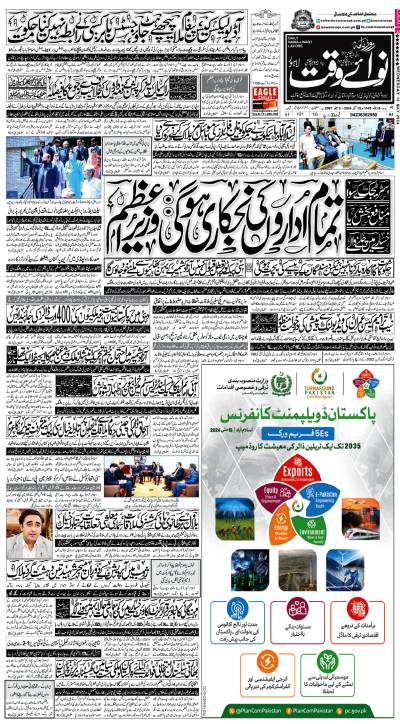Navigating the Middle East
The Middle Eastern region has enormous importance in Pakistan’s foreign policy. Due to its geographical proximity and historical linkages, it has always been an area with paramount importance for Pakistan’s national interests. Besides a political, economic, and strategic convergence, this region offers cultural, religious, and historical theatres to determine Pakistan’s foreign policy priorities.
Unfortunately, throughout history, this region has been a centre of big power proxies exploiting its heterogeneous population by dividing them into tribes, sects, and religions. In the contemporary geopolitical environment, KSA (Kingdom of Saudi Arabia)/Iran rivalry, intended for regional dominance, has made this region tumultuous and left Pakistan with little space to navigate. Pakistan shares strong bonds with both rivals and has its compulsions in dealing with them.
Even before the inception of Pakistan, the Muslims of the subcontinent had historical relations with all MENA (the Middle East and North Africa) countries. During the First World War, the Muslims started the Caliph movement to save and restore the ailing Ottoman caliphate. The MENA Region people also vehemently supported the Pakistan movement. The relations based on brotherhood continued after the independence of Pakistan. KSA and Iran supported Pakistan in times of every crisis whether these were wars with India or natural calamities.
In the contemporary setting, this region has bogged down in conflicts and chaos due to global and regional power politics. Ever since the Islamic revolution took place in Iran, the fissures between Iran and KSA have been widening. Now, this hostility came to a stage where a little spark may be turned into a conflagration. Pakistan’s relations with both regional powers are of paramount value. Iran shares a 959-kilometer border with Pakistan. Both countries are connected through various economic, trade, energy, and security, cultural and religious engagements. The recent Sino/Iran strategic deal would further create new avenues of cooperation. Iran is very important for Pakistan’s internal security due to the tumultuous population along both sides of its porous border.
On the other side, KSA also holds a special place in Pakistan’s foreign policy. Pakistan shares deep-rooted cultural, religious, economic, and strategic ties with Riyadh. Following the Iranian revolution and during the Afghan war, Pakistan’s relations with Tehran became sour which brought Islamabad and Riyadh closer and their strategic partnership became deeper. Riyadh played a key role in the economic development of Pakistan. Moreover, Pakistan’s diaspora in KSA and its allied GCC countries is a major source of foreign remittances. This shows that both sides hold equal importance for Pakistan and tilting towards either side will alienate the other. Hence, Pakistan cannot afford it due to its internal security problems and the dwindling economy. In Pak/Iran and Pak/KSA relations, there exists a limited parity which demands a neutral foreign policy towards both.
In the Yemen crisis, Pakistani parliament passed resolutions to stay neutral as both KSA and Iran were involved in the conflict. The realist prism proposes that while choosing between two allies, you must go for the one where approximate parity is tilted. However, in Pak/KSA and Pak/Iran, there exists a similar parity. Hence, balancing does not work here.
Secondly, another alliance that makes the region volatile and compels Pakistan to navigate smartly is the new alliance led by Turkey. Turkey besides its close economic and commercial engagements is also a vocal supporter of Pakistan’s stance on Kashmir. However, it has divergent and conflicting interests in Syria, Libya, and Egypt from Pakistan’s gulf partners. Qatar’s closeness to Turkey and Iran made its relations rancorous with GCC countries. In the Qatar blockade, Pakistan wisely maintained neutrality, however, this time; the mounting conflicting dynamics are narrowing diplomatic space for Pakistan.
In managing its relations with new regional blocs, Pakistan should firstly prioritise its national interest. Currently, in the backdrop of the August 5 move, the Kashmir issue has become the lynchpin of Pakistan’s foreign policy. It has become an easy way to win Pakistan’s confidence. So far Turkey and Malaysia have succeeded to win the hearts of the Pakistani people by their vocal support. However, is Turkish and Malaysian support enough to pressurise Narendra Modi to restore the Kashmir status? These countries do not have much political clout in New Delhi and Washington as do Riyadh and its GCC partners. So far, Pakistan is disappointed by the response of its gulf partners on Kashmir; however, in the long run, the simmering public pressure against Modi atrocities could compel them to change their policies. Moreover, in the time of crisis, Pakistan could use their clout in New Delhi and Washington to deescalate tensions as it did successfully following the Balakot episode.
Navigating through this complex and sensitive region, Pakistan needs a dynamic and multipronged foreign policy. Firstly, the civil/military leadership should prioritise its key interests and then use different tools from its foreign policy kit for each partner in the region. The current Sino/Iran strategic deal has further narrowed parity between Pak/Iran and Pak/KSA relations. Secondly, despite a year after the altercation of Kashmir status, the Pakistani ruling elite is still bewildered and unable to devise a vibrant policy on Kashmir. Choosing between the economy and Kashmir, Pakistan is oscillating aimlessly. Without a strong economy, no one will pay heed on what is happening in Kashmir. Hence, taking Kashmir and economy hand-in-hand, Islamabad should devise a neutrality-cum-balancing strategy towards the Turkish-led bloc and the KSA-led block. Thirdly, Pakistan needs to diversify its partnership to reduce reliance on either side. This would give Pakistan enough space to manoeuvre. Moreover, Pakistan should place its best diplomats in the MENA region who know the art of diplomacy. As Churchill said, “Diplomacy is the art of telling people to go to hell in such a way that they seek direction”.





